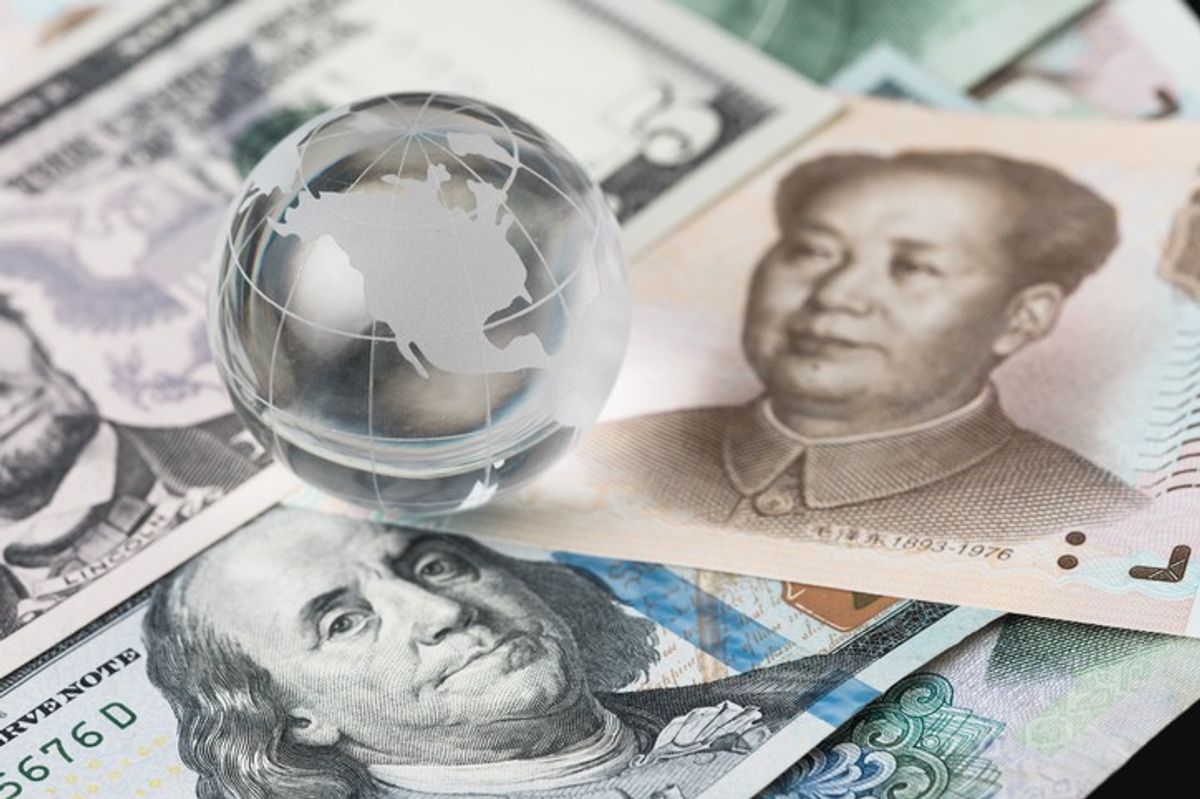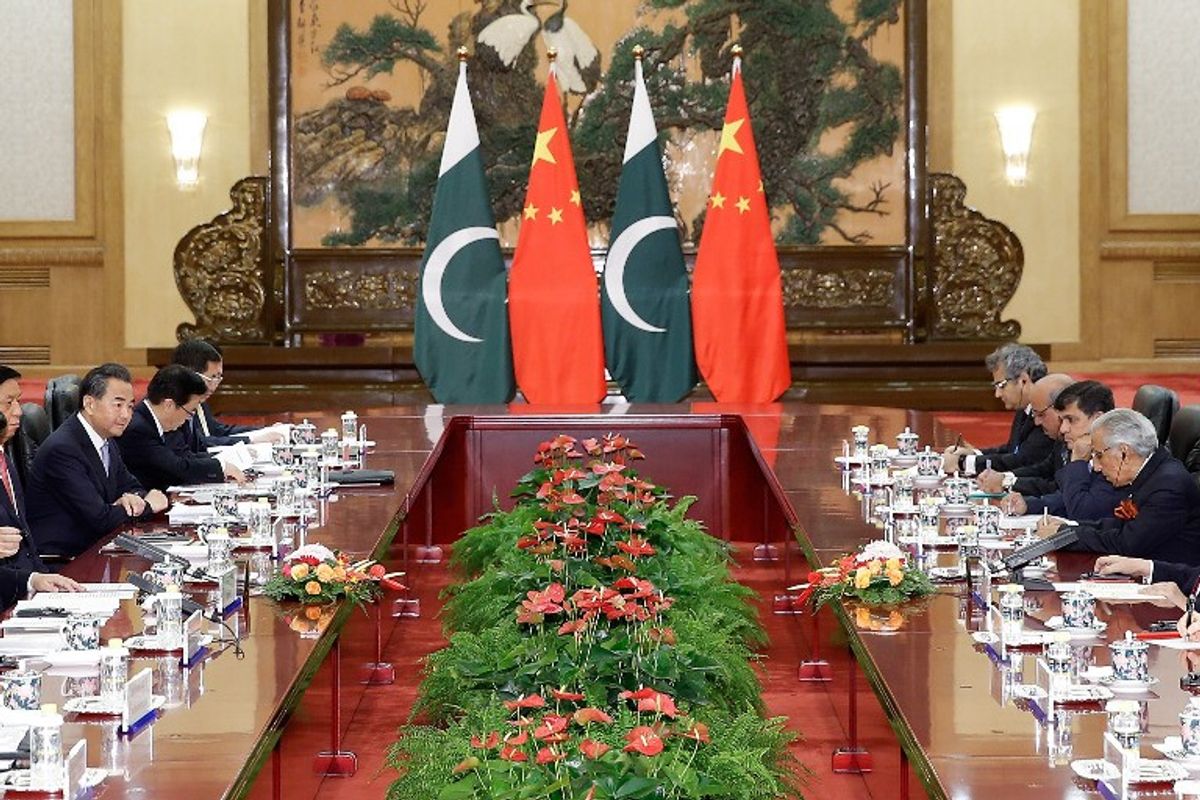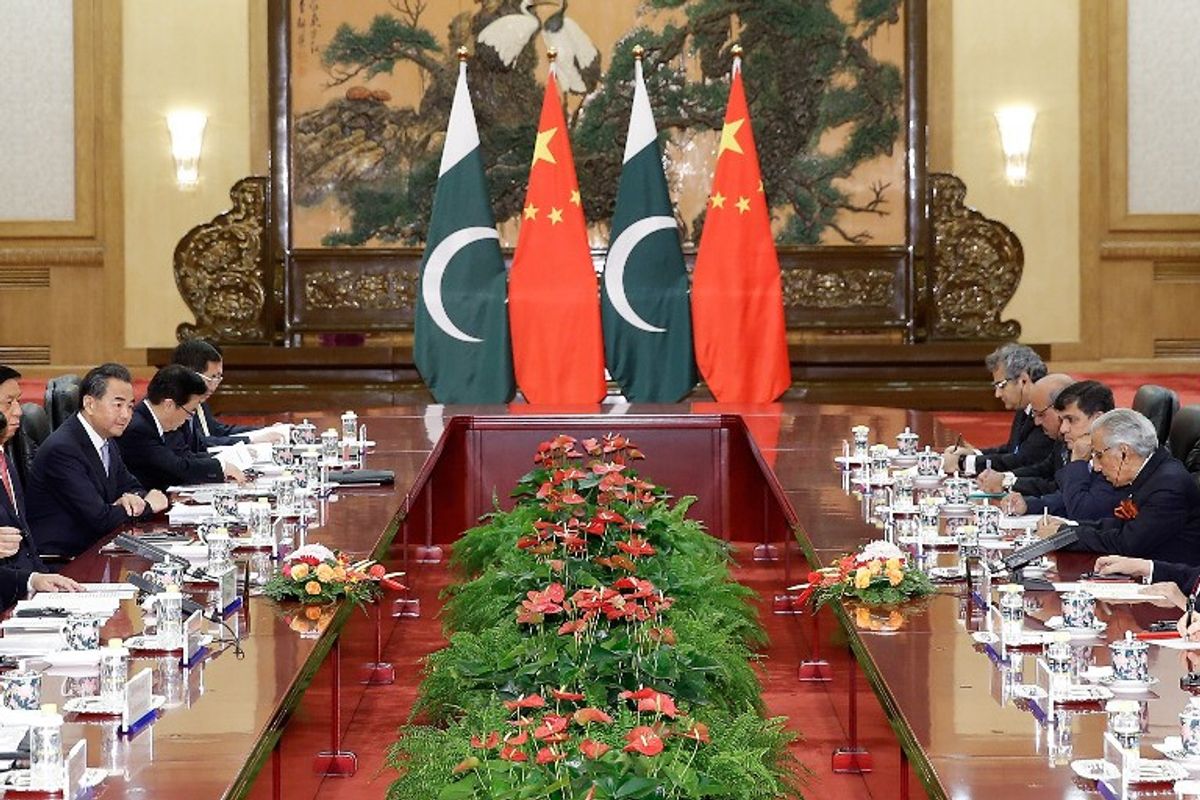The McKinsey Global Institute estimated last year that digital trade has a greater impact on economic growth, measured by a nation’s Gross Domestic Product, than traditional trade in goods and services. The McKinsey study said that digital trade volume has grown 4500 percent since 2005 and is projected to increase by another 900 percent over the next five years. However, despite its magnitude, this booming new area of international trade is neither well understood and nor adequately regulated. The Cipher Brief’s Fritz Lodge spoke with Susan Ariel Aaronson, a research professor focusing on digital trade at the George Washington University Elliot School of International Affairs, about the new trend in digital trade flows and how policymakers should address it.
The Cipher Brief: What do you make of the concept that stagnating global trade flows are a sign that the global economy has reached a level of “peak trade?”
Susan Ariel Aaronson: I’ve never heard this term before; but if I may, the concept is ridiculous because it presumes that there is a finite supply of goods, services and information that we can trade. How could we possibly know that?
However, people are concerned about the slowdown in trade, the rise of economic nationalism and the return of protectionism in the U.S. In those concerns, we might be missing an important trend. Information has been traded across borders for centuries but the internet has made things vastly easier, and information has now become the fastest growing component of trade. Information (processed data) is also important to manufacturing. The Congressional Research Service recently published a study called “Made in the USA” that concluded that information represents a substantial and growing share of the value of many manufactured products, from pacemakers and washing machines to cars and airplanes.
TCB: When we’re talking about the stagnation in global trade growth, we’re just missing this rise in digital trade and information flows?
SAA: We can’t measure it yet, but we do know that there is a boom in digital trade growth. The U.S. government defines digital trade as goods and services delivered via the internet, but it is also defined as cross-border information flows—payrolls, downloads, searches, software etc… We do know that, largely because of the internet, people are using a much wider variety of platforms in a far greater number to trade information. Whether that’s payrolls or taking an online course or my working with a scholar in Belgium, the internet has made it so much easier and cost-effective to trade information. That has led to a huge boom.
But it’s also led to real concerns about sovereignty and about malware and about control of information, all of which seem to be coming to a head under our current President.
TCB: What are the problems with measuring digital trade?
SAA: Generally we define trade as the exchange of goods/services for money. However, there is a lot of information online that is exchanged with no money. Because it’s not a transaction, we don’t know how to measure it. That’s the first thing.
The second thing is a question of classification. Is it a good or a service? Sometimes it’s clearly a good. When you go on Amazon and buy a book you receive a good in exchange for money, even if its downloadable and not a hard copy. But if your surgeon asks a radiologist in India to read your x-ray, that’s a service. However, some people think that it should be measured as neither a good nor a service — that it’s something else entirely.
Basically, we haven’t figured out the parameters of digital trade yet. It’s all guesstimates so far.
TCB: What do you think that policymakers need to do to understand digital trade and properly regulate it?
SAA: The United Nations Conference on Trade and Development (UNCTAD) and the World Bank have been working for years to try to define the enabling environment for the internet and digital trade. UNCTAD says governments should put in place laws in four legal areas – e-transaction laws, consumer protection, privacy and data protection, and cybercrime. However, it doesn’t say anything about cyber-security laws, limits on surveillance and human rights. We know that laws on cyber-security and human rights are equally important to build trust among netizens and businesses online
TCB: Do you think that free trade agreements such as the Trans-Pacific Partnership (TPP), which had a lot of stipulations about digital trade and openness, are the right direction to move forward on this issue?
SAA: I think because trade agreements can be multilateral and binding, they can be good venues to govern cross-border information flows. The TPP contained binding language that made the free flow of information across borders (traded) a default, and it banned strategies that require data to be created and stored locally (data localization). In addition, it clearly delineated exceptions: when nations can breach these rules and limit cross-border information flows (for national security, public morals, privacy, etc.) As a result, trade agreements such as TPP could make it harder for governments to censor and limit information flows.
But trade agreements are not negotiated in the same multi-stakeholder manner as other forms of internet governance. They are negotiated in secret. Average netizens have little influence over the process and outcomes of these negotiations. Ironically, trade agreements do not fit the governance demands of the information age, although new agreements are designed to facilitate the free flow of information that could enhance knowledge and scientific progress.
I did some work looking at how trade agreements can regulate things such as censorship and filtering, which undermine innovation and economic growth by undermining access to information. Censorship and filtering certainly undermine human rights. While trade agreements are not a perfect means to the end of opening digital information flows, I think they could be a more effective path towards that end.
Unfortunately, the U.S. under Trump has abandoned TPP. It had some very bad things, as all trade agreements do, but at least it would provide a framework, and ultimately it could be improved upon. Hopefully, within the NAFTA renegotiations, we will have a digital trade chapter modeled on TPP. But backing away from TPP was a huge loss. I think the United States screwed itself by backing away from that agreement.
Here’s the thing, if trade agreements are to govern information flows, they really need to be as multilateral as possible, because the internet is global and you want rules to be shared rules in order to build trust. It’s thus very important to make trade agreements as plurilateral as possible. Among the three countries in NAFTA – Canada, Mexico, and the U.S. – their share of the internet population is something like seven percent, whereas [the share of the nations in the] TPP would have been 25 percent. The future of trade and the future of population growth is definitely set in Asia, and TPP was a key part of engaging that growth. It wasn’t perfect but it was a start.
TCB: The Trump administration seems to be very focused on trade in goods. By focusing only on that part of trade, what is it missing? Is there a chance that the United States will miss out on the next trade revolution by ignoring new forms of trade, especially digital trade?
SC: Absolutely.
But I think there is also something else going on. Here is the odd thing. Until around 2015, the United States was totally focused on expanding market access in terms of digital trade. But, starting in late 2015 or early 2016, Ambassador Michael Froman and the Obama administration started focusing on things like data localization, server location requirements, cyber theft, and other forms of digital protectionism.
That worries me because it signaled that something was happening to U.S. firms. They were less confident, and you could see it in metrics such as market share. The fastest-growing communities of internet users are in Asia, while 11 of the world’s 15 largest internet firms are American. But four of them are Chinese, and in the top 20 there is one Japanese company and no Europeans. So, there is a possibility that the United States is slowly starting to lose its comparative advantage in digital trade. And, as a result, policymakers are focusing less on expanding market access and setting rules to govern trade, than in protecting market actors.
We are the only country that has actually defined digital protectionism. The United States and the European Union are the only countries that actually allege digital protectionism. The U.S. and the EU have shared their concerns about China’s barriers to digital trade and Russia’s. Russia in particular has very strong data protection and server location requirements. I’m a little bit worried about this focus on digital protectionism without a clear set of international rules – like the rules set out for trade under the World Trade Organization. Right now, the United States is making assertions without a shared definition among different nations as to what digital protectionism is.
Even more important, and dangerous, is what do you do about digital protectionism. China has server location requirements. What are you going to do about it? When you allege normal trade protectionism there is a remedy for that. You try to put in place countervailing duties to counter subsidies or put in place tariffs to counter goods and services that are dumped (goods are sold in a foreign market for less than they cost to produce.) For makers of goods, these are the traditional strategies to enable affected U.S. firms to compete with foreign companies. But what do you do with server location requirements? What is the appropriate response? As an example, who is injured by Chinese censorship of Twitter or Google search? Not Twitter or Google’s employees—the main losers are the people who may want but have no access to Twitter or Google search. What does that mean for access to information? Data localization policies, filtering, or censorship can alter the architecture of the internet, which has long favored technical efficiency over state politics. When officials place limitations on which firms can participate in the network, they may reduce the overall size of the network, which could also raise costs. Finally, digital protectionism could have unanticipated side effects, including reducing internet stability and decreasing access to information by reducing cross-border information flows. Moreover, by reducing access to information, digital protectionist strategies could undermine human rights and scientific progress. I don’t see anyone in the U.S. government thinking about this.
We need clearer definitions, and that’s what I’m working on now.
TCB: Do you see any hope for U.S. policymakers coming around to this problem?
SAA: I testified to the U.S. International Trade Commission three weeks ago, and I just heard that it is launching two more investigations into digital protectionism. It worries me that the paradigm, instead of being focused on exporting and setting up rules, is now defensive in nature.
This predates Trump and his protectionist paradigm, but now, frankly, I don’t see the Trump administration being at all responsive to the tech industry or interested in tackling the issues associated with digital trade in any way shape or form.
I would like to see the United States be the leader in establishing a new set of rules and norms to govern digital trade and punish digital protectionism but I don’t see it happening. At the moment, it’s a mess.













